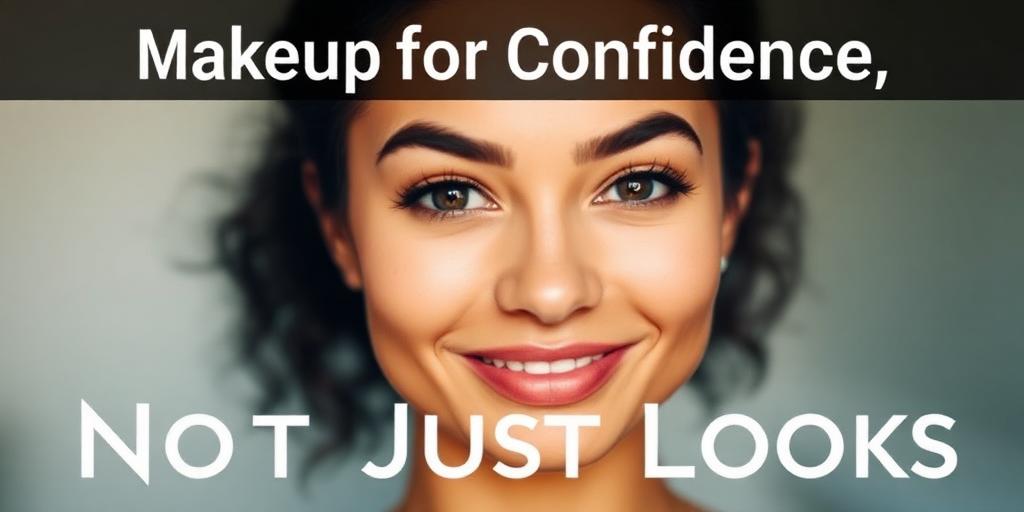For too long, makeup has been narrowly perceived as a superficial tool for altering appearance. While its aesthetic function is undeniable, a more profound understanding reveals its significant role in psychological well-being, particularly in fostering confidence. This article explores how makeup transcends mere cosmetics to become a potent instrument for self-assurance and empowerment.
Beyond the Surface: The Psychological Impact of Application
At its core, makeup application is a deliberate act of self-focus. It encourages individuals to engage with their reflection, often leading to a more positive self-perception. This engagement is not about hiding flaws but about enhancing features and expressing identity. Studies in social psychology suggest that self-expression through personal grooming can significantly contribute to an individual’s sense of agency and control over their image. When we choose how we present ourselves, we actively participate in shaping our identity, which directly correlates with an uplifted mood and stronger self-esteem.
The Ritual of Readiness: Building Inner Strength
The act of applying makeup can be a powerful daily ritual, akin to preparing oneself for the challenges and opportunities ahead. This routine provides a structured start to the day, offering a moment of quiet reflection and intention-setting. For many, this ritual acts as a form of mental preparation, helping to transition from a state of rest to one of active engagement. The meticulous process—from selecting shades to precise application—can induce a sense of calm and focus, fostering a mindset of readiness that naturally boosts an individual's confidence for the day's tasks. This isn't about conforming to external beauty standards, but about leveraging a personal ritual to fortify one's inner resolve.
Makeup as Empowerment: A Tool, Not a Crutch
It is crucial to distinguish between using makeup as an empowering tool and relying on it as a crutch for insecurity. When approached with intention, makeup can serve as a form of 'soft armor,' allowing individuals to project an image of capability and professionalism. This is particularly relevant in professional or social settings where first impressions matter. The feeling of being 'put together' can translate into increased assertiveness, improved communication, and a greater willingness to engage confidently with others. This empowerment stems from an internal sense of satisfaction and preparedness, rather than a dependency on external validation. It’s about leveraging personal presentation to align with one’s desired internal state of confidence.
Cultivating Self-Worth Through Self-Care
Framing makeup application as a legitimate form of self-care is essential. In a world that often demands constant output, dedicating time to personal grooming can be a vital act of self-nurturing. This investment in oneself signals self-worth and respect, reinforcing the idea that one is deserving of care and attention. When individuals prioritize these moments, they are not just enhancing their looks; they are actively cultivating a relationship with themselves based on value and appreciation. This foundational self-care directly contributes to a robust sense of confidence that emanates from within.
In conclusion, the conversation around makeup must evolve beyond its superficial applications. When understood as a psychological tool for self-expression, a ritual for readiness, an instrument for empowerment, and a component of self-care, its true value in fostering confidence becomes unequivocally clear. It is not about transforming into someone else, but about enhancing and affirming the confident self that already resides within.









